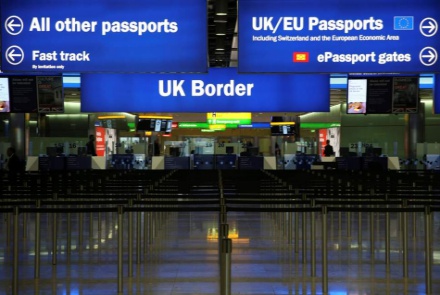The immediate future of the UK immigration system.
At the end of December 2018, the UK government published a 164-page “white paper” on changes in immigration policy, which should allow replacing the current (point-based) system and focusing on the skills and qualifications of the personnel involved. Allegedly, the changes should come into force in January 2021, details are planned to be announced in early 2020.
The basic principle: the cessation of the free movement of EU citizens to the UK. “It will be a system in which the skills of workers are important,” said Prime Minister Theresa May, “and not what country they (workers) came from.” As a result, a transition to a unified immigration scheme should be implemented, which will be valid for both EU citizens and third-country nationals. The goal is to attract qualified workers with skills that meet the requirements of the modern labor market.
Most importantly, the government has proposed abolishing the immigration limit. In other words, the authorities believe that there should be no restrictions on the number of skilled migrants to meet the needs of business and the country's economy. This means that the most worthy can always come to work in the UK.
The minimum annual wage threshold is planned to be set at £ 30,000, but consultations with employers should help determine whether the selected amount meets market realities or not.
After five years, it is supposed to provide an opportunity to obtain permanent residence, but with the exception of specialists being transferred under the ICT procedure.
Authorities hope to maintain an ICT transfer procedure for skilled workers, which allows companies to relocate their employees from outside the UK.
The list of professions in-demand will also have to continue, protecting critical employees earning less than £ 30,000 a year.
Once again, an attempt is made to simplify the procedure for obtaining a residence permit. As a result, application processing time should be reduced, as should the burden on employers. The total time for processing the documents of a qualified employee should be two to three weeks compared with the current time costs estimated from three to six months.
Starting in January 2021, citizens of some countries will be able to come and work in the UK for 12 months, but then will have to leave the country for a period of 12 months (before they can return). This option will be open to people from low-risk countries, which are likely to include European countries, South Korea, Japan, Singapore, the United States, Canada and Australia.
The procedure will not be sponsorship, which means that people will have to apply for their own visa, allowing them to work in the category of temporary workers (without reference to a specific employer).
This option is planned as a test one, the government is going to control the number of visas issued in this way, their duration, and may also introduce restrictions on the number of arriving workers in this category. The option obviously does not provide for the possibility of dependents' entry and the use of state benefits. The final decision on this issue is likely to be made in 2025 (upon completion of a number of test programs).
The UK currently has a youth mobility agreement signed with Australia, Canada, Hong Kong, Japan, Monaco, New Zealand, South Korea and Taiwan. These schemes allow people between the ages of 18 and 30 to come to the UK for two years to work or study.
The official document proposes to introduce a similar procedure for EU representatives, “so that young people can continue to enjoy the social, cultural and educational benefits of living in the EU and the UK.”
The new student system will be similar to the existing Tier 4 (students) program.
The most significant change is the provision of opportunities for undergraduate and graduate students to work for six months after graduation. Postgraduate students with a Ph.D. degree will be able to work for 12 months.
It is noteworthy that this category of workers after training will be able to convert their "immigration permits" and move into the category of skilled workers.






